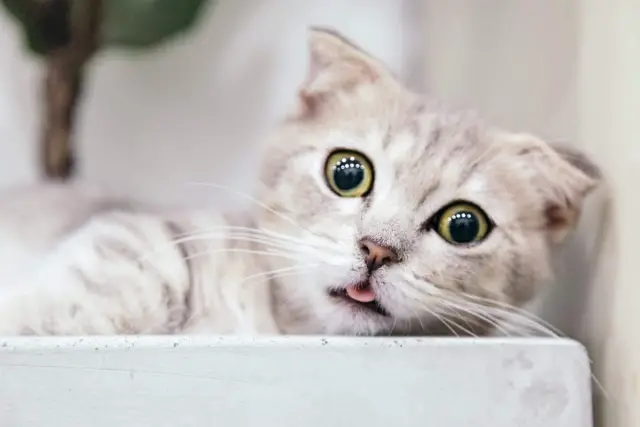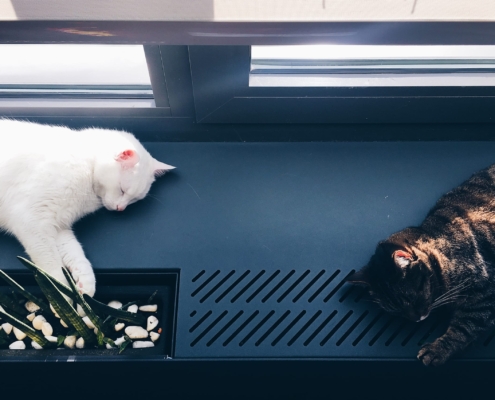
Nose cancer, also known as nasal cancer or sinonasal carcinoma, is a silent and often misunderstood disease that can affect our feline companions. The nasal cavity is a delicate and intricate structure, and when cancerous cells infiltrate this area, it can lead to devastating consequences. As responsible pet owners, it is crucial to be aware of the signs, risk factors, diagnostic procedures, treatment options, and supportive care available for cats with nose cancer. By understanding this disease and advocating for early detection and treatment, we can provide the best possible care for our beloved feline friends.
Understanding the Causes and Risk Factors of Nose Cancer in Cats
The exact cause of nose cancer in cats remains unknown, but several risk factors have been identified. Exposure to environmental carcinogens, such as secondhand smoke, certain household chemicals, and industrial pollutants, has been linked to an increased risk of developing nose cancer. Additionally, chronic inflammation or infection of the nasal cavity, genetic predisposition, and certain viral infections may also play a role. It is important to note that while these risk factors may increase the likelihood of nose cancer, not all cats exposed to them will develop the disease.
Signs and Symptoms of Nose Cancer in Cats
Detecting nose cancer in cats can be challenging, as the early stages of the disease often present with subtle symptoms that can easily be mistaken for other common feline ailments. However, as the cancer progresses, certain signs may become more noticeable. These can include persistent sneezing, nasal discharge (which may be bloody or pus-like), difficulty breathing through the nose, facial swelling, loss of appetite, weight loss, and changes in behavior. If you notice any of these symptoms in your cat, it is crucial to seek veterinary assistance promptly.
Diagnostic Procedures for Nose Cancer in Cats
Diagnosing nose cancer in cats requires a comprehensive evaluation by a veterinarian. The diagnostic process typically begins with a thorough physical examination, including a detailed history of your cat’s symptoms and any relevant risk factors. To further assess the nasal cavity, imaging techniques such as X-rays, computed tomography (CT) scans, or magnetic resonance imaging (MRI) may be recommended. In some cases, a biopsy may be necessary to confirm the presence of cancerous cells. This involves obtaining a small sample of tissue from the nasal cavity for microscopic examination by a veterinary pathologist.
Treatment Options for Nose Cancer in Cats
The treatment approach for nose cancer in cats depends on various factors, including the type and stage of the cancer, as well as the overall health of the cat. Surgery, radiation therapy, and chemotherapy are the primary treatment modalities used in managing this disease. Surgical intervention aims to remove the cancerous tissue from the nasal cavity, while radiation therapy targets the remaining cancer cells. Chemotherapy may be recommended as an adjunctive treatment to address potential metastasis or to enhance the effectiveness of surgery or radiation therapy. Your veterinarian will work closely with you to determine the most appropriate treatment plan for your cat.
Supportive Care for Cats with Nose Cancer
Cats undergoing treatment for nose cancer may require additional supportive care to maintain their overall well-being. This can include pain management, nutritional support, and assistance with daily activities. Pain medications, such as nonsteroidal anti-inflammatory drugs (NSAIDs) or opioids, may be prescribed to alleviate discomfort. In some cases, a feeding tube may be necessary to ensure adequate nutrition if the cat has difficulty eating due to the cancer or treatment-related side effects. Additionally, providing a comfortable and stress-free environment for your cat can greatly contribute to their quality of life during this challenging time.
Prognosis and Survival Rates for Cats with Nose Cancer
The prognosis for cats with nose cancer varies depending on various factors, including the type and stage of the cancer, the success of treatment, and the overall health of the cat. Unfortunately, nose cancer in cats is often diagnosed at an advanced stage, which can limit treatment options and impact the overall prognosis. However, with early detection and appropriate treatment, some cats may experience remission or prolonged survival. It is important to discuss the prognosis and potential outcomes with your veterinarian to make informed decisions about your cat’s care.
Preventive Measures for Reducing the Risk of Nose Cancer in Cats
While it may not be possible to completely prevent nose cancer in cats, there are steps that can be taken to reduce the risk. Minimizing exposure to environmental carcinogens, such as secondhand smoke and household chemicals, can help protect your cat’s respiratory health. Providing a balanced and nutritious diet, regular veterinary check-ups, and vaccinations can also contribute to overall well-being and potentially reduce the risk of certain viral infections that may be linked to nose cancer. Additionally, maintaining a clean and hygienic living environment can help prevent chronic inflammation or infection of the nasal cavity.
Coping with the Emotional Impact of a Nose Cancer Diagnosis in Cats
Receiving a nose cancer diagnosis for your beloved feline companion can be emotionally overwhelming. It is essential to seek support from your veterinarian, as they can provide guidance, answer questions, and offer resources to help you navigate this challenging journey. Connecting with fellow cat owners who have experienced similar situations through support groups or online communities can also provide valuable emotional support and a sense of camaraderie. Remember to take care of yourself during this time, as your well-being is crucial for providing the best possible care for your cat.
Advocating for Early Detection and Treatment of Nose Cancer in Cats
Nose cancer in cats is a complex and potentially life-threatening disease. By staying informed about the causes, risk factors, signs, diagnostic procedures, treatment options, and supportive care available for cats with nose cancer, we can advocate for early detection and treatment. Regular veterinary check-ups, awareness of environmental hazards, and prompt attention to any concerning symptoms can make a significant difference in the outcome for our feline companions. Let us join together to raise awareness about this silent threat and ensure that our beloved cats receive the care and support they need to combat nose cancer.
If you suspect your cat may be exhibiting symptoms of nose cancer, do not hesitate to consult with your veterinarian for a thorough evaluation. Early detection and intervention can greatly improve the prognosis and quality of life for your feline companion.
If you enjoyed my article, I would appreciate you sharing it with your network.

Sima Ndlebe
Sima writes for CatBuzz. He is interested in Cats, Health and Fitness, and Entrepreneurship.
Published: 14 November 2023
Related Articles
Disclaimer
The content found on CatBuzz.org is presented on an "as is" basis and is intended for general consumer information and education purposes only. Any utilization of this information is voluntary and solely at the user's own risk.
None of the articles or content should be regarded as, or used in place of, veterinary medical advice, diagnosis, or treatment. The information provided on the website is purely for educational and informational intentions and should not be considered a substitute for professional guidance from a veterinarian or other qualified expert. The articles are designed to inform consumers about veterinary healthcare and medical matters that may impact their cat's daily life. It should be noted that this website and its services do not constitute the practice of any form of veterinary medical advice, diagnosis, or treatment. CatBuzz.org explicitly disclaims any liability for any direct or indirect damages or losses that may arise from the use of or reliance on the information contained within the content.
Consumers must consult a veterinarian, veterinary specialist, or another qualified veterinary healthcare provider when seeking advice regarding their cat's health or medical conditions. It is important not to ignore, avoid, or postpone seeking medical advice from a veterinarian or other qualified veterinary healthcare provider solely based on information obtained from this website. If you believe that your cat may be experiencing a medical issue or condition, it is imperative to promptly contact a qualified veterinary healthcare professional.



